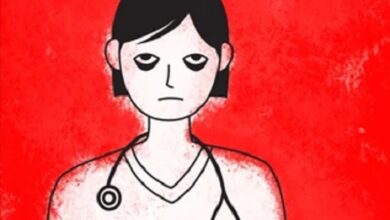What is Childhood amnesia appearance and 4 hypotheses
Childhood amnesia
What is your first memory? The answer to this question will be, in most cases, a situation or a brief image of some event or sensation that we experienced in our early childhood , corresponding mainly to when we were between three and five years old. But at that time we had been alive for several years. Our brains were already processing information from the environment and we were able to learn skills, information and ways of acting. In this article we will let you know about the Childhood amnesia.
What happened before that first memory? Why can’t we remember something before then, like when we learn to walk or talk? The explanation for this void of memories has a name: it’s called infantile amnesia .
More about childhood amnesia
Childhood amnesia is defined as the inability to remember phenomena and situations that occurred in our childhood , on an autobiographical level. That is, we maintain, for example, the skills acquired at this stage (for example, walking or talking), but not as we did.
This amnesia usually affects memories that occurred before the age of three . In fact, when asked about our first memories, most people usually indicate some type of element or situation that they experienced from that moment on. Occasionally, it is possible to remember some previous element, but it is not frequent and would be limited to some very significant phenomenon, a sensation or image.
Babies have been shown to have memories but quickly forget them . And even at the autobiographical level: five-year-olds can identify and remember a situation that happened when they were two. It’s not that children under three have no memory: they are able to remember what happens to them. Simply these memories fade with time. Thus, what would happen would be real amnesia, as it is not that they do not exist, but that they disappear over time.
There are cases of people claiming to remember vividly previous phenomena. Although in some cases this may be the case, most of the time we will not be confronted with a real memory, but with an elaboration generated from the information that we have in the present (for example, from what our parents told us that happened) . And, in many cases, the person who says this is not that he is lying, but that he has generated a false memory that is experienced as true.
When does it appear?
This amnesia of early events has always been seen in adults, but research shows that this amnesia is already visible in childhood. Specifically, Bauer and Larkina’s 2013 experiments and research indicate that childhood amnesia usually appears at approximately seven years of age .
In addition, these investigations allowed us to observe that younger children are capable of having more memories, but they are still less clear and detailed, while older children manage to evoke phenomena in a much broader, more precise and detailed way, despite the fact that they they did not remember their early years.
Why don’t we remember anything from our early years?
The reason for childhood amnesia is something that intrigued researchers dedicated to this area and generated a lot of research in this direction. Although there is still not a complete consensus about the exact causes why we can’t remember practically nothing of our first years of life, there are several hypotheses about this. Some of the best known are as follows.
4 hypotheses about Childhood amnesia
1. Linguistic hypothesis
Some authors consider that childhood amnesia is due to the lack of inadequate coding due to the absence or lack of language development , as a structure that allows the organization of information. Until the development of this skill, we would be using an iconic representation that we would remember through images, but once memory begins to be encoded and organized through language, these early memories will eventually fade and subsequently be lost.
2. Neurological Hypothesis
There are also neurological hypotheses. In this sense, some recent research seems to indicate that the lack of memory at that time could be linked to the immaturity of the brain and the neuronal overpopulation that we have during the first years of life.
During early childhood, our hippocampus is immersed in a process of constant neurogenesis, dramatically increasing the number of neurons we have (especially in the dentate gyrus). This constant growth and creation of neurons makes it difficult to register information in a persistent and stable way, losing autobiographical information.
The reason for this could lie in the degradation of memories, replacing new neurons with pre-existing connections , or in the fact that new ones are more excitable and are activated more than those already found in the brain.
There may also be a link between this forgetfulness and neural pruning, in which part of the brain’s neurons die in a pre-programmed way to improve the efficiency of the nervous system and leave only the most potent and reinforced connections.
3. Hypothesis on the formation of the I
Another proposed explanation suggests that we are unable to remember our first moments, because in those times we still don’t have a self-concept or an identity: we are not aware of who we are, that we exist, so there is no “I”. From which we can prepare a biography .
4. Other hypotheses
In addition to these, we can find many other hypotheses that have been overcome by the development of psychology. For example, based on the classic psychoanalytic model, it has been proposed that forgetting is due to the repression of our instincts and the Oedipus conflict.




